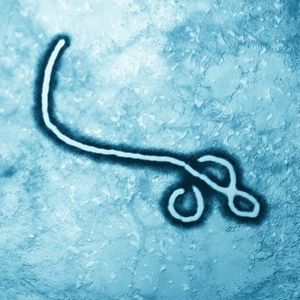
The world is on tenterhooks as we keep an eye on the new strain of the coronavirus from China that is rapidly spreading to other countries. But what about other deadly diseases that could potentially cause mayhem all over the world?
The Marburg virus was first identified in 1967, when two large outbreaks occurred in Marburg and Frankfurt in Germany, and in Belgrade, Serbia. Scientists identified the origin of the disease as the African green monkey used in laboratories, imported from Uganda, according to the World Health Organization.
In 2017, the World Health Organization reported that they managed to contain an outbreak of the Marburg virus in eastern Uganda.
But now, after the virus was detected in fruit bats in Sierra Leone, experts are taking notice, as the strain is very similar to a strain found in 2005 in Angola – the biggest outbreak of the virus thus far.
What is Marburg virus disease?
Marburg virus disease (MVD), like Ebola, is a severe, often fatal haemorrhagic illness, found in Rousettus aegyptiacus (fruit bats of the Pteropodidae family) and transmitted to people, which then spreads by means of human-to-human transmission: through direct physical contact; blood; secretions and other bodily fluids; through contaminated surfaces; or sexual transmission.
Marburg is from the same family as Ebola, i.e. the Filoviridae family, or the filovirus. These diseases can all cause haemorrhaging and end up being fatal.
The incubation period can be anything from three to 21 days, according to the WHO.
The illness often starts abruptly with high fever, headaches, muscle aches, diarrhoea, abdominal pain, nausea and vomiting. As the virus progresses, it can lead to liver failure, massive blood loss, inflammation of the pancreas and ultimately death.
How does the virus spread from bats to humans?
According to a news release, the Rousette bats that carry the virus primarily feed on fruit. When these bats have the virus, it enters their saliva, urine and faeces – which may be deposited on the fruit when they take small bites. The virus is then passed on to humans and animals that eat these contaminated fruits.
Why is this discovery a cause for concern?
The new study urges health authorities and other authorities in animal and environmental sectors to take measures to help prevent the spread of the virus from bats to humans. However, it is not all doom and gloom. Tracey Goldstein, co-principal investigator and pathogen detection lead for PREDICT, the project funded by USAID to help curb Marburg, says that finding Marburg in bats before any known cases in people is a huge achievement, as authorities can now identify Marburg as a possible cause when diagnosing any haemorrhagic fever symptoms in the community.
How is the public educated to prevent another outbreak?
According to the above news release, the public has already been warned against attempting to kill or remove bats by physically handling them. They are also being made aware that, although fruit bats are carriers of the deadly disease, they play a large part in the ecological system, therefore shouldn't simply be killed off.
Amara Jambai, deputy minister of health of Sierra Leone, said that with the help of PREDICT, a window has been opened to show that there is more beyond Ebola and that there is a need for partnership "well before outbreak events unfold".
Image credit: iStock




 Publications
Publications
 Partners
Partners











